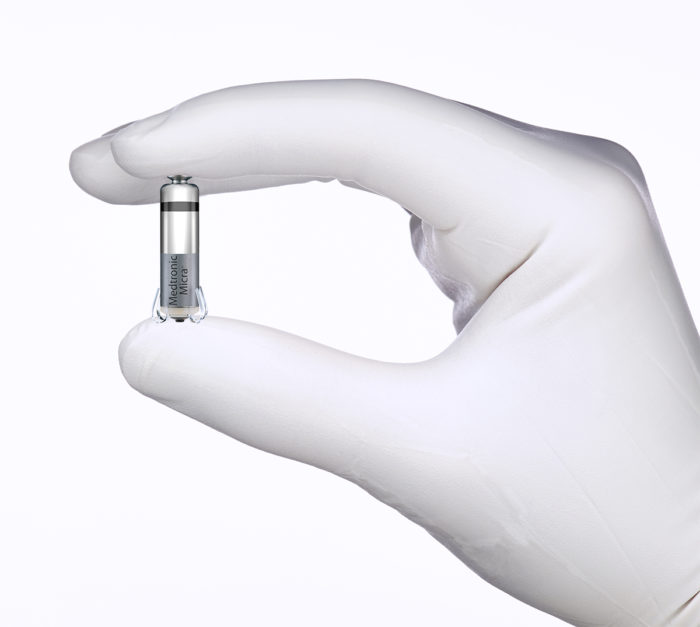A CHOC Heart Institute cardiologist Dr. Anthony McCanta reached a major milestone in pediatric cardiac care when he joined an elite group of physicians in the world who have implanted the Micra® Transcatheter Pacing System (TPS). Dr. McCanta’s 12-year-old patient, who has Tetralogy of Fallot, is the smallest and youngest patient – quite possibly the only child – to receive the device.

About the size of a vitamin, Micra TPS, which was approved by the Food and Drug Administration just last year, provides the most advanced pacing technology at one-tenth the size of a traditional pacemaker. Unlike traditional pacemakers, the device does not require cardiac leads or a surgical “pocket” under the skin to deliver the pacing therapy. Instead, the device is small enough to be delivered through a catheter and implanted directly into the heart. This offers patients a safe alternative to conventional pacemakers without the complications associated with leads — all while being cosmetically invisible. “The Heart Institute offers many innovative therapies to treat children and young adults with heart rhythm abnormalities. We are thrilled to now offer the Micra TPS,” says Dr. McCanta.
A former CHOC resident and pediatric cardiologist specializing in electrophysiology at Children’s Hospital & Medical Center, Omaha, Dr. Vincent Thomas praises his former colleague for his role in advancing care. “Having trained and worked with Dr. McCanta, it is no surprise to me that he is breaking new ground and striving for excellence,” he says. “Having access to this type of innovation benefits patients and families by providing creative solutions to challenging problems.”

The Micra TPS is designed to automatically adjust pacing therapy based on a patient’s activity level. It also incorporates a retrieval feature, though the device is designed to be left in the body. If a patient needs more than one heart device, the Micra TPS can be permanently turned off. A new device can then be implanted without the risk of electrical interactions.
“The miniaturized, leadless pacemaker is an option for patients with structurally normal hearts and with congenital heart disease,” explains Dr. McCanta. Not every patient is eligible; those with complex pacing needs require a more complex pacing system. But, we would be happy to evaluate patients with pacemaker indications to determine if they could benefit from this new therapy.”
To schedule a consultation with Dr. McCanta, call 888-770-2462.




